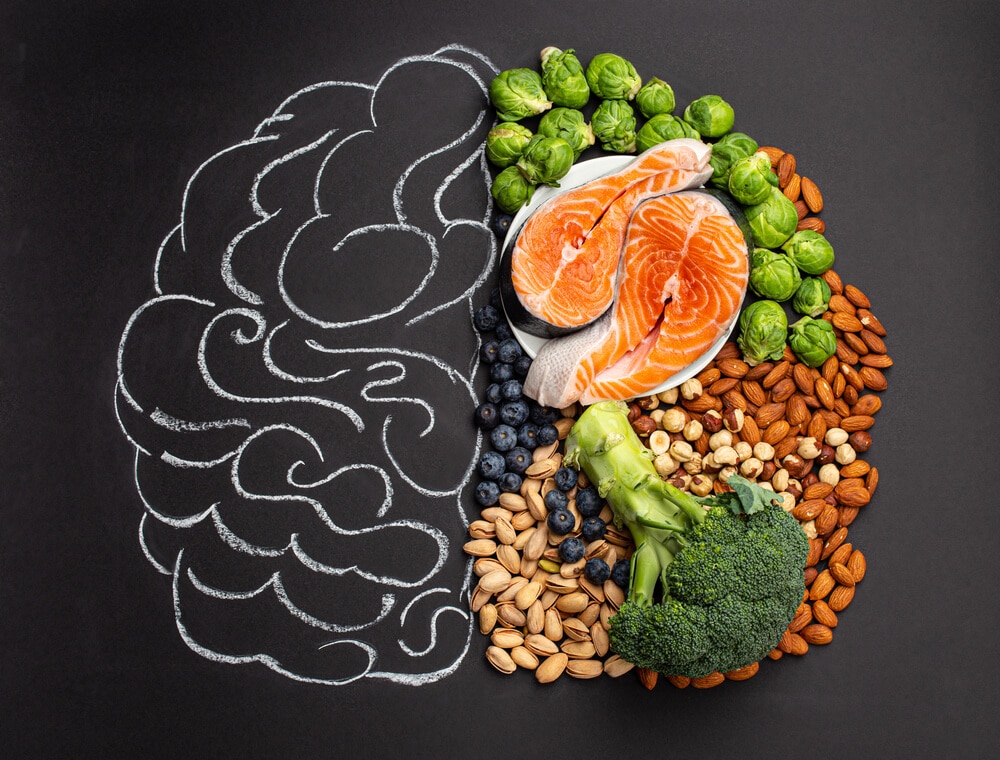Nourishing the Mind: The Vital Connection Between Nutrition and Mental Well-being in the Recovery Process

Recovery is a transformative and courageous endeavor, one that involves healing the mind, body, and spirit. While much emphasis is rightly placed on therapeutic interventions and support networks, the role of nutrition in mental well-being during the recovery process is equally paramount. In this exploration, we delve into the profound impact of nutrition on mental health and how adopting a nourishing approach can significantly enhance the recovery journey.
Understanding the Mind-Body Connection:
- Nutrient Deficiencies and Mental Health:
- Nutrient deficiencies can have profound effects on mental health. The brain requires a variety of vitamins, minerals, and essential nutrients to function optimally. Deficiencies in nutrients such as omega-3 fatty acids, B vitamins, and amino acids have been linked to mood disorders and cognitive impairments.
- Gut-Brain Axis:
- The gut-brain axis is a bidirectional communication system between the gastrointestinal tract and the central nervous system. A healthy gut microbiome is associated with improved mental well-being. Nutrient-dense foods contribute to a balanced microbiome, influencing mood, stress levels, and overall cognitive function.
- Blood Sugar Regulation:
- Stable blood sugar levels are crucial for maintaining mood stability and preventing energy crashes. Consuming a balanced diet that includes complex carbohydrates, proteins, and healthy fats helps regulate blood sugar, providing a steady source of energy for the brain.
The Impact of Nutrition on Mental Health:
- Omega-3 Fatty Acids and Mood:
- Omega-3 fatty acids, found in fatty fish, flaxseeds, and walnuts, are essential for brain health. Research suggests that these fatty acids play a role in reducing symptoms of depression and anxiety. Including sources of omega-3s in the diet can be particularly beneficial during the recovery process.
- B Vitamins and Cognitive Function:
- B vitamins, including B6, B9 (folate), and B12, play a crucial role in cognitive function and mental health. Deficiencies in these vitamins have been linked to depression and cognitive decline. Incorporating sources of B vitamins, such as leafy greens, legumes, and lean proteins, supports mental well-being.
- Protein and Amino Acids:
- Proteins are essential for the synthesis of neurotransmitters, the chemical messengers that transmit signals in the brain. Amino acids, the building blocks of proteins, influence mood regulation. Including lean sources of protein, such as poultry, beans, and tofu, supports neurotransmitter production.
- Antioxidants and Brain Health:
- Antioxidants, found in fruits, vegetables, and nuts, protect the brain from oxidative stress and inflammation. These compounds contribute to overall brain health and may play a role in preventing neurodegenerative disorders. A diet rich in colorful, plant-based foods provides a diverse array of antioxidants.
Practical Tips for Nourishing the Mind during Recovery:
- Balanced Meals and Snacks:
- Aim for balanced meals and snacks that include a variety of food groups. Incorporate whole grains, lean proteins, healthy fats, and a colorful array of fruits and vegetables. This approach ensures a diverse range of nutrients that support mental well-being.
- Hydration:
- Staying hydrated is essential for cognitive function and overall health. Dehydration can impair concentration and mood. Aim to consume an adequate amount of water throughout the day, and consider incorporating hydrating foods, such as water-rich fruits and vegetables.
- Mindful Eating:
- Practice mindful eating by paying attention to hunger and fullness cues. Engage all your senses while eating, savoring the flavors and textures of your food. Mindful eating fosters a healthy relationship with food and promotes overall well-being.
- Limit Processed Foods and Sugar:
- Processed foods and excessive sugar intake can contribute to inflammation and fluctuations in blood sugar levels, impacting mood and energy. Limiting the consumption of processed foods and sugary snacks supports mental health stability.
Seeking Professional Guidance:
- Consulting a Nutritionist or Dietitian:
- Individuals in recovery may benefit from consulting a nutritionist or dietitian who specializes in mental health. These professionals can provide personalized guidance based on individual needs, dietary preferences, and any underlying health conditions.
- Collaboration with Healthcare Providers:
- Collaboration between healthcare providers, therapists, and nutrition professionals is crucial in developing a comprehensive approach to mental well-being during the recovery process. Communication ensures that all aspects of an individual’s health are considered and addressed.
As individuals navigate the complex and rewarding journey of recovery, the role of nutrition in mental well-being cannot be overstated. Adopting a nourishing approach that prioritizes nutrient-dense foods, supports the gut-brain axis, and balances blood sugar levels contributes to a foundation of resilience, stability, and overall mental health. By recognizing the profound connection between what we eat and how we feel, individuals in recovery can empower themselves to embrace a holistic approach that fosters lasting well-being in mind and body.





